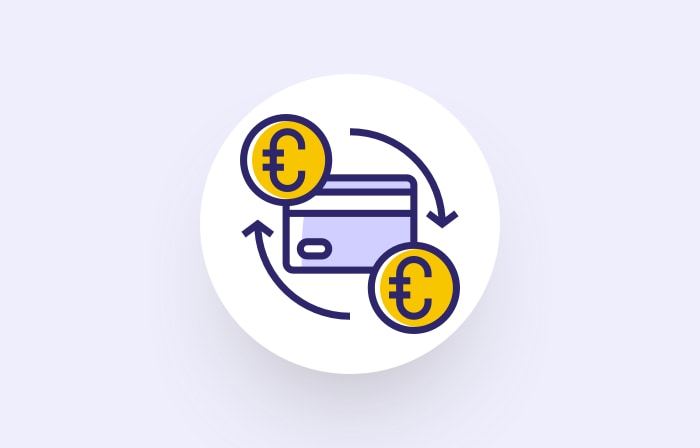





Welcome to HabitatTours, the leading platform for professional online casino and gaming testers. Our team of experienced testers has years of experience in the gambling industry and is dedicated to providing valuable feedback and insights to online casinos and gaming websites.
Online casinos have been around for over twenty years. But what are online casinos where you can legally gamble in New Zealand? And which New Zealand online casino offers the most games and has a good reputation?
Check out our online casino list below for the best online casinos of New Zealand.
Every New Zealand online casino has a huge range of slots, often hundreds. That can make it difficult to determine which slot is fun and especially good. Therefore, write HabitatTours for every slot machine in the New Zealand casinoland a review. This makes it easier for everyone to decide which slot is worth playing and which is not.

Reviewed every week www.HabitatTours.co.nz the latest slots from best online casinos in New Zealand. What slot machines have come out? And are they fun slots to play? www.HabitatTours.co.nz checks everything. Players can play these slots instantly for free or at a reliable online casino for Real Money.
Online casinos are distinguished by the various bonuses they offer, to both new and existing players. Think of a welcome bonus, a no deposit bonus or free spins .
But which safe online casinos have the best deals for new players? Habitat Tours gives an honest picture of all the bonuses available and where the pitfalls lie.

Which reliable online casino has the best game selection? And can players better go to Royal Vegas Casino or better still Jack's Casino or the All Slots Casino? Read on www.HabitatTours.co.nz the honest reviews of independent experts for all physical casinos and thus make the best choice.

In the gambling world, not every online casino is reliable. For example, some companies cheat with payouts. Then how do players know where to play without worry? And what about the gambling licenses of online casino sites?
On the basis of a gambling license, players can somewhat determine whether gambling online at this online casino is reliable. For gambling licenses, companies must meet specific requirements. A reliable online casino follows all the requirements. If this is the case, then players can safely gamble online with money.
The authority issuing this license checks whether the relevant New Zealand gambling sites comply with it. For example, a license may be invalidated or companies that do not comply with the rules may be fined.
As of October 1, 2021, a dozen online casinos on the internet will be allowed to offer games of chance to New Zealand players. They are also allowed to advertise online games of chance.
The Gambling Authority said that companies only get a license if they can properly monitor gambling behavior and take measures, for example if a player has all the signs of a (beginning) gambling addiction.
Online casinos that do not have a New Zealand license are not allowed to offer games of chance on the internet in New Zealand. If they do, they risk a hefty fine. Players are also not allowed to gamble online for real money here.

When players are looking for a reliable online casino to play, it is wise to pay attention to a number of things in advance. Below we list the requirements that we think an honest online casino should meet. We also recommend players to take the knowledge of Online Casino Ground to their disposal, so that they are well informed.
Every casino must have a license to offer casino games. Whether a casino in New Zealand is tolerated is determined by the Gambling Authority.
In dollarpa, gambling with money on the internet is regulated in some countries. The most respected gambling authorities that are labeled as trustworthy are:
Malta Gaming Authority
NZ Gambling Commission
- AAMS Italy
- Swedish Gaming Authority
Alderney Gambling Control Commission
- Spanish Directorate-General for the regulation of games of chance
The license can often be seen on the casino's website. This also directly indicates that this casino can be seen as safe.

Players who want to play at a casino on the internet must first create an account. For this, in many cases, they need to scan a passport and share personal data.
To be sure that privacy is guaZodiaceed, it is important to pay attention to official knzd brands and to read the privacy conditions in advance. It should state what data the casino stores from players and what they use this data for.
Some good knzd brands are:
- License label
Responsible Gaming
- Gamcare

A casino must ensure that players play on their website in a secure environment and can safely enter (personal) data.
To be sure that players are playing in a secure environment, they need to find out if the website has a so-called SSL certificate. This is easy to check by paying attention to two aspects: the URL must have an HTTPS:// entry and there must be a lock in front of it.
If the browser has both elements, then you can safely play in the online casino and deposit/withdraw money. Is the lock missing? Then absolutely do not enter any personal data and do not make deposits or withdrawals.

Casinos on the internet offer players various attractive bonuses. With this, they hope to bind them to themselves for a longer time.
Players who are just new are often offered a welcome bonus. This allows them to get to know the casino and they are offered many extras, such as extra playing credit to test new casino games.
In addition to the welcome bonus, there are many more casino bonuses to choose from. There are many conditions attached to these bonuses and their payout.
For example, players must wager the bonus amount with the winnings a number of times and play around before they can have it paid out. These round conditions vary between 10 and 50 times.
The casinos apply different bonus conditions for this. So please read these payout and bonus terms carefully in advance before you sign up. On our casino page you can read more about this and find the best casino bonuses.

Did you win? Congratulations! Then it's time for the payout of the winnings. Nevertheless, snares often hide here. Don't forget to read the small print before you get rich.
We always recommend checking the payout methods and terms. Often the money is in the account after a few working days, but some, less well-known casinos can sometimes set different conditions here. Good to take into account!

How is support arranged at a casino? Can players contact us with questions or problems? Before they sign up, it is useful to see if there is a helpdesk and how to access it.
Most casinos on the internet have a live chat, have an email address and a special complaints line. Of course, it is always nice to know where to turn with questions and complaints.

A lot of casino players have gone before you. Many of these players have shared their casino reviews on our platform. Here you can read their honest opinion about casinos.
Based on their reviews, you can make a better estimate of the reliability of a casino. We therefore recommend that you read these casino reviews carefully before making a choice.

The online casinos that have obtained a New Zealand license from the Gambling Authority can usually be considered reliable. Currently, there are 21 reliable online casinos with a license. Below we have listed the 21 reliable online casinos:
In New Zealand, we pay gambling tax when we have won a cash prize with online gambling for Real Money. Different rules and tax rates apply to cash prizes that players win in a game of chance,or win in a foreign Game of chance. Also, the rules apply to cash prizes below or above $449.
A large online casino has all the games that are played in a 'real' casino – and much more! Among other things, players can try out these games.
Slot machines, slots or slots are digital versions of the big machines that the player knows from the casino and from the cafe. With each’ spin‘, new symbols appear on the screen and players who get matching symbols on a’ Payline ' win money – or a high jackpot.
These are the real casino classics like blackjack , poker , roulette and baccarat . Good New Zealand online casino sites often offer different variants of each game. All of these games can be played with Real Money or virtual money.
Live games are table games and game shows that are played in real time. The player watches a video stream in a casino, where a human dealer presents the game. This makes Online gambling feel like gambling in a physical casino.
Players watch sports matches played live and bet on the winnings of their favorite team. They can gamble online for money on the match on various variables. Think about wins, but also the number of goals, fouls and other gebnzdnisse. Betting on sports competitions becoming increasingly popular.
Some online gambling sites have even more games in their range, such as bingo, Keno, online scratch cards and lotteries. Online casino gambling offers a lot of different possibilities. Some classic games can also be played for real money at a New Zealand online casino.
Live casino games are a big hit, because they give the player the feeling that he/she is at the gaming table in a real casino. These games often involve multiple players at the same time who can chat with each other and with the dealer. The range of live casino games is large and is becoming increasingly extensive. For example, at the largest online casino in New Zealand, Bet365, you can play all the well-known games.
At this time, players can participate in live roulette, blackjack, poker, baccarat, sic bo and craps. These games are often available in multiple variants. There are also live game shows (Deal or no Deal, Wheel of Fortune, Crazy Time), in which a player participates as a candidate. At online casinos New Zealand, these games are almost always available, although this can vary per online casino.
The leading software developer Evolution Gaming has the largest range of live games and even develops original game variants that can not be found at any 'real' casino. Most New Zealand online casinos cooperate with Evolution Gaming.
To bring a little life to the brewery, many online betting sites organize tournaments. Every week or month there are tournaments on selected slot machines or table games, and a few times a year there are extensive tournaments that are put in the spotlight.
In a game tournament, a ranking applies. The players who perform well within the period of the tournament will enter a leaderboard with their name and score. That's not only good for their ego: cash prizes are also awarded to the winners!
The prize pools of tournaments can reach many tens of thousands of dollars. the players in the top ten can be thousands of dollars richer at the end of the tournament, but also players who finish much lower in the ranking often get a cash prize or at least a package of free spins for the slots. Keep in mind that online gambling for money can also involve losses.
At a reliable online casino, players can pay with secure payment methods. At most companies they can go with a credit card or Paysafecard and of course ideal . Of course, every payment method has its advantages and disadvantages.
At most reliable online casinos, players can go with a credit card. This makes it an easy payment method. Money amounts are written off at the end of the month and players pay interest in most cases.
With a PaySafeCard, players impose a clear maximum gaming budget. This is a prepaid card that players can purchase at shops nearby, such as de Kruidvat, Primera or Albert Heijn. Players who want to play at a casino online in New Zealand can use a PaySafeCard, although iDeal is also a good option for an online casino in New Zealand.
Every gambler dreams of winning a big prize while playing in a casino for Real Money. Although it does not happen to every player, it is also not unlikely that there will be a moment when a player wins a big prize.
If players win a large amount, they may want to have this money in the account as soon as possible. There are a number of things they need to know.
Most New Zealand online casinos apply a maximum amount that is paid out per unit of time. For example, it is not uncommon for a casino online New Zealand to pay out a maximum of $ 10,000 per day.
Some New Zealand online casinos have a lower maximum or have a weekly maximum. This can result in the payout of a big prize taking longer than expected.
The maximum payout amount can be found in the casino's terms and conditions.

Also, the method of payout may differ per casino site. In many cases, the payout is made using the same payment method with which the player himself deposited money at a previous time.
If there are different payment methods used, an online casino can even choose to split the payment and make it through these different channels.
This is also something to take into account in advance, as there may be additional costs associated with paying out using a certain payment method.
These additional costs may have been low on the player's deposit, but a lot higher on the payout of a large win amount.
With substantial cash prizes, ranging from $ 1,000 to around $ 3,000, most online casinos ask for a verification of some of the player's details.
Usually, in any case, this involves a copy of an ID certificate, verification of residential data, and sometimes also a copy of the credit card with which the deposits were made.
The online casino wants to verify that the player is indeed who he or she says he or she is.

Verification may take several days. Some casinos have a dubious reputation for taking a very long time, possibly in the hope that the player will spend part of the winnings in the casino in the meantime.
It is very important because of the verification that a player has a maximum of one account per casino, as the terms and conditions of almost every casino prescribe. This is what reliable online casinos do to prevent bonus fraud.
If it turns out that several accounts are registered at the same address, this can cause major problems with the payout. A refusal to pay is not uncommon.
Where depositing money at an online casino is often a matter of minutes or even seconds, a payout always takes a little longer.
Partly because of administrative reasons, such as the verification of personal data, but also because casinos are less in a hurry to spend money.
At most casinos, it takes a few business days for the payout to be made. The exact duration also depends on the location of the casino, the country in which the player's bank is located and the payment method.
Foreign transactions always take a little longer than a transaction within a country. A transaction via PayPal is faster than a bank transfer.
When these factors are taken into account, the average payout takes two to six business days at most casinos.

Actually, every good online casino offers a way to get in touch with them. A player can consult with an employee of the casino if he has a question, problem or complaint. Whether it is about claiming bonuses, withdrawing money won or poorly working software: a good online casino tries to help its customers quickly and well.
Because every dissatisfied customer can earn a bad review and thus reputational damage. The best casinos offer a live chat option as a contact method, ideally a multilingual chat that is available 24/7. Also, sometimes a player can call to get telephone support. Other gambling sites have a contact form that works via email – in that case, it may take longer for someone to get answers to their questions.
Playing in an online casino should be fun and stay. Unfortunately, it is possible to develop a gambling addiction, in which a person obsessively plays a lot, loses a lot of money and gets into serious trouble.
Such an addiction can be as persistent as an addiction to drugs or alcohol. A person who notices signs of a gambling addiction in himself or others should seek professional help. Many online casinos themselves have ways to prevent or counteract a gambling addiction in their players. For example, they offer online information about safe gambling and addiction.
Sometimes they have employees who check how often their players gamble and how much money they deposit in the process. At the request of a player, casinos can also temporarily or permanently block his or her account, so that playing online casino is temporarily no longer possible.
Online casinos in New Zealand allow their players to set limits for their maximum bet. They are also affiliated with the CRUKS, a register in which players with gambling problems are included: such a player can then no longer go to other New Zealand casinos online.
Looking for a reliable casino? At Habitat Tours you can read reviews for and by other players. This will help you make a well-founded choice. Supplemented with our objective online casino information, you have found a suitable casino in no time.
✓ We provide you with reliable, objective information. It is our mission to be independent and neutral, so that you can choose for yourself a reliable casino.
✓ Because others share their bad experiences, you don't have to go through the same. Thus, you can save yourself from shady practices.
✓ Have you had a bad experience or a very positive one with a casino? With us you can tell your story. Post a review effortlessly!
Yes, online casinos can be really reliable. The casinos are run by well-known companies with years of experience within the casino world.
The online casinos must meet strict requirements and be in possession of an official gambling license. Permits are issued in various countries.
In October 2021, the first New Zealand online casino sites will be allowed to open their virtual dnzds. Casinos pay out the won amounts on time, but it is nevertheless smart to first read the reviews about the casino sites.
Online gambling is possible from 18 years and older. This applies to both the physical and the online casinos. players must verify for an account at a casino site, for example by sending a copy of the ID.
If you are under 18 years old, then you can not have a penny paid out by the casinos anyway. you will have to wait a while!
Yes, it is possible to play at a New Zealand online casino since October 1, 2021. These include Royal Vegas Casino, Bet365, BetCity and Lucky Nugget are examples of great New Zealand online casinos.
If you want to play at an online casino, choose a casino that has a license from The New Zealand Gambling Authority. All casino sites in our online casino list have this license. This means that they are reliable online casinos where you can play without worries about safety.
Yes, the online casinos pay out the won cash prizes faster and faster. Thanks to all sorts of innovations in the field of payments, some amounts of profit are already paid out in a matter of minutes.
However, you should keep in mind that most fast-paying casino sites still take a few working days before the payouts are in your account.
Finding a reliable online casino is a lot easier than you probably think. There are hundreds of casino sites active, some of which you may know by name.
The most famous casinos are owned by large international companies and are known for their reliability.
You can also check the license, game offerings and reviews of other players. There are many casino enthusiasts who leave a review on www.HabitatTours.co.nz!
At HabitatTours, we believe in the importance of transparency and honesty in the online gambling community. That's why we provide comprehensive and accurate reviews and evaluations that players can use to make informed decisions.
Yes, you can gamble online as a New Zealand player. There are plenty of professional casino sites that accept players from our country and welcome them with open arms.
However, the offer will increase significantly from October 1, 2021. Various New Zealand and foreign gambling companies then launch a New Zealand-language casino site.
It's a matter of waiting for the spectacle to really erupt.
It has been legal to gamble online since 2021, if at least at a casino with a New Zealand license. Online gambling at a foreign casino is still not legal, but in practice it is tolerated.
Yes, in 2021, the law on the games of Chance has changed. Any entreprenNZD can now apply for a New Zealand license for his online casino. Our website provides reviews of the Best New Zealand casino sites.
Most online casinos offer one or more ways to contact them. Players with questions or complaints can reach the casino via live chat, phone and/or email form.
Because every gambling site buys other titles from the hundreds of software companies that make casino games. As a result, almost every casino has a unique range of games and there is a lot for the player to choose from.
Join the Casino reviews community.
Join the Casino reviews community.
Enter the code we just emailed.